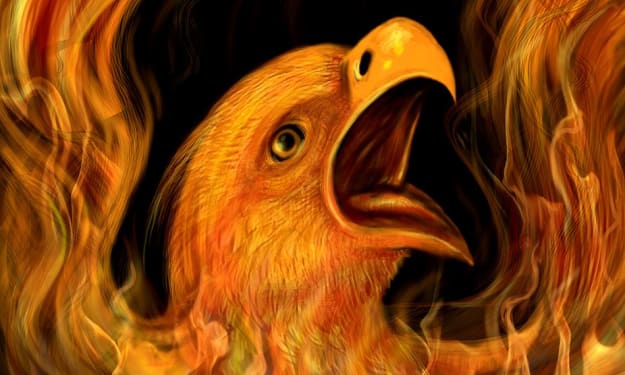Echoes in the Fog
A journey through recurring dreams

Every night for the past month, I've been having the same dream. It's the kind of dream that leaves an impression so vivid, so intense, that you can't shake it off even after you've woken up. It's a nightmare, really, but not in the traditional sense. There's no monster under the bed or shadowy figure chasing me through endless corridors. Instead, it's a nightmare that feels eerily real, like a memory replaying itself over and over.
In the dream, I'm standing at the edge of a vast, fog-covered lake. The water is still, reflecting the moonlight in a way that makes it look like molten silver. The air is cold, biting into my skin despite the heavy coat I'm wearing. There's a boat tied to a rickety wooden dock, swaying gently as if inviting me to step in. I know I shouldn't, but every night I do.
Once I'm in the boat, it starts to drift across the lake on its own. The fog thickens, and soon I can't see anything but the swirling mist around me. I feel an overwhelming sense of dread, as if something terrible is waiting for me on the other side. My heart pounds in my chest, and I grip the sides of the boat until my knuckles turn white.
Then I hear it—a faint, haunting melody. It's a song I've never heard before, yet it feels familiar, as if it's been etched into my soul. The melody grows louder, more insistent, and I realize it's coming from the lake itself. The water ripples, and I see shadows moving beneath the surface. They're not fish or any kind of sea creature; they're human figures, their faces twisted in expressions of pain and sorrow. They reach out to me, their mouths open in silent screams.
I always wake up at that point, drenched in sweat and gasping for breath. The fear lingers long after the dream has ended, casting a shadow over my entire day. I can't concentrate at work, and my friends have noticed the dark circles under my eyes. I tell them it's just stress, but they don't know the half of it.
I've started to wonder if the dream is trying to tell me something. It's too consistent, too persistent to be just a random creation of my subconscious. I've read about recurring dreams and how they often carry messages from the deeper parts of our minds. But what message could this nightmare possibly hold? What am I supposed to understand from the lake, the boat, and the haunting melody?
I began to investigate, trying to piece together any clues that might help me unravel the mystery. I visited libraries, poring over books on dream interpretation and symbolism. I talked to therapists and even consulted a few psychics, though their vague answers only added to my frustration. It felt like I was chasing shadows, much like the figures in the lake.
One night, as I lay in bed, dreading the inevitable return of the dream, a thought struck me. What if the dream isn't just about fear? What if it's about something I've forgotten, some buried memory trying to resurface? Determined to find out, I decided to face the nightmare head-on, to confront whatever lay hidden in the depths of that fog-covered lake.
That night, the dream came as usual. I stood by the lake, felt the cold air, and stepped into the boat. But this time, as the fog thickened and the melody began, I didn't let the fear overwhelm me. I focused on the song, letting its haunting beauty wash over me. The figures in the water appeared, but instead of recoiling in terror, I looked at them closely. Their faces, once terrifying, seemed to shift into expressions of pleading, as if begging for help.
Suddenly, it hit me—the dream wasn't just a nightmare. It was a call for understanding, a plea from the past. These figures were not strangers; they were echoes of people I had known, people I had lost. The lake was a metaphor for my grief, the boat my journey through mourning, and the melody a reminder that their memory still lived within me.
When I woke up, I felt a strange sense of peace. The nightmare hadn't ended, but its meaning had become clear. It was a message from my subconscious, urging me to confront my unresolved feelings and to honor the memories of those I'd lost. From that day on, the dream still came, but it no longer filled me with dread. Instead, it felt like a journey of healing, a nightly reminder that while the past may be filled with pain, it also holds the key to understanding and peace.
And so, I learned to embrace the dream, to listen to its melody, and to let the fog lift, revealing not just the shadows of the past, but also the light that can come from facing it.
About the Creator
Enjoyed the story? Support the Creator.
Subscribe for free to receive all their stories in your feed. You could also pledge your support or give them a one-off tip, letting them know you appreciate their work.






Comments
There are no comments for this story
Be the first to respond and start the conversation.